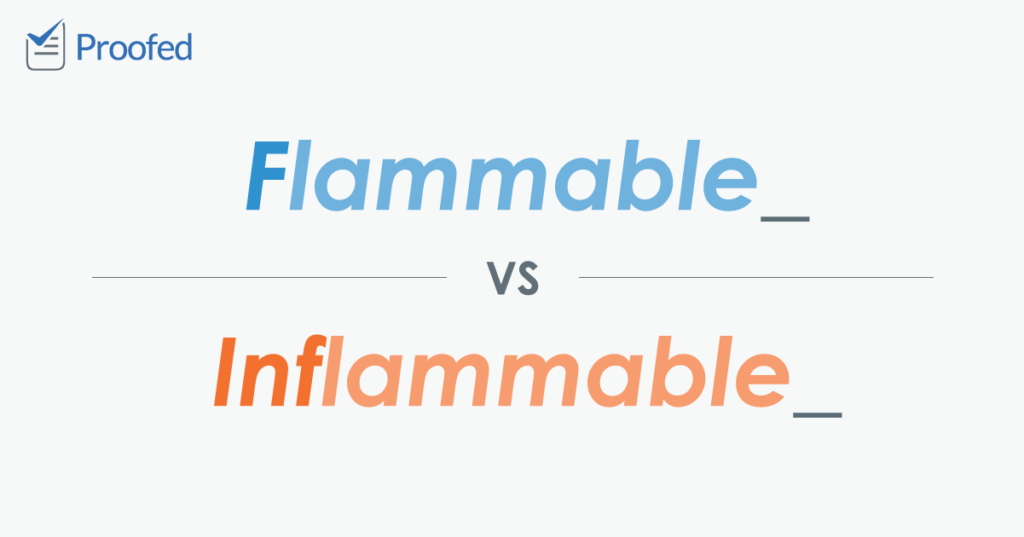There are many words where “in-” can be added as a prefix to create a negation. For example, “incomplete” is the opposite of “complete,” and “inflexible” is the opposite of “flexible.” And many people therefore assume that “inflammable” is the opposite of “flammable.”
However, this is not true. In English, both “flammable” and “inflammable” mean “catches fire easily.” But why is this? And how can you avoid errors when using these terms? Let us explain.
A Misleading Prefix
We mentioned that “in-” often indicates a negation when used at the start of a word. We see this in words such as “indiscreet” and “invalid,” as well as the examples above. In fact, most English words that begin with “in-” follow this pattern. And it is thus logical to assume that if “flammable” means “catches fire easily,” “inflammable” would mean the opposite. But the prefix “in-” can also mean “on” or “into.” We can see this in words like:
- Inscribe (i.e., write on or in something)
- Inquire (i.e., conduct research into something)
This version of “in-” comes from the same Latin root as the prefix “en-,” which we use in the word “enflame” (i.e., make something catch fire). As such, the “en” in “enflame” is the same as the “in-” from “inflammable” (i.e., it suggests bursting “into” flame). And this “in-” is not a negation.
Find this useful?
Subscribe to our newsletter and get writing tips from our editors straight to your inbox.
Should I Use Flammable or Inflammable?
First, “flammable” and “inflammable” are NOT OPPOSITES. They are variant versions of a word meaning “catches fire easily.” As such, you can these terms interchangeably. For instance, we could say either of the following:
- Gasoline is highly flammable. ✓
- Gasoline is highly inflammable. ✓
These sentences mean the same as one another. However, as proofreaders, we’re keen on clarity. And with this in mind, we suggest using “flammable” unless you have a specific reason to favor “inflammable.”
This will remove ambiguity since you won’t have to worry about people thinking “inflammable” means “fire resistant.” If you need a word that does mean “fire resistant,” meanwhile, you can try “non-flammable.”
